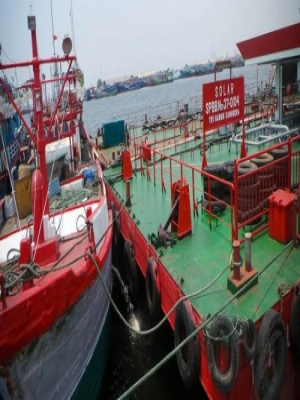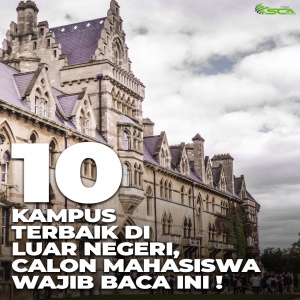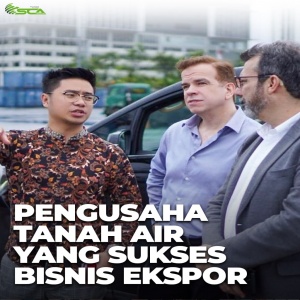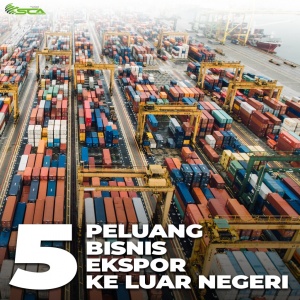Logistics Center Built, BBM Is No Longer Stored in Singapore
- Publish Sunday, 31 March 2019
 Liputan6.com, Jakarta - The Government will develop a bonded logistics center in Indonesia by relaxing Government Regulation (PP) Number 32 of 2009 concerning Bonded Stockpiling Sites. With this effort, Indonesia no longer needs to buy fuel oil (BBM) to Singapore or other imported products or raw materials from abroad.
Liputan6.com, Jakarta - The Government will develop a bonded logistics center in Indonesia by relaxing Government Regulation (PP) Number 32 of 2009 concerning Bonded Stockpiling Sites. With this effort, Indonesia no longer needs to buy fuel oil (BBM) to Singapore or other imported products or raw materials from abroad.
The Minister of Finance (Minister of Finance), Bambang Brodjonegoro, revealed that with this concept or policy, all auxiliary materials, raw materials to ordinary capital goods hoarded abroad can be transferred to the country so as to improve the efficiency of business activities.
"So there is no such thing as oil or fuel storage in Singapore. Fuel storage must be close to the market, it is clear the ASEAN market is Indonesia as the biggest fuel user. We will pull this storage area and other logistics centers from other countries to Indonesia," he firmly said in his office, Jakarta, Thursday (09/17/2015).
According to Bambang, the development of this bonded logistics center must be followed by the revision of Government Regulation No. 32 of 2009. With this easing, the bonded warehouse concept will benefit Indonesia. Because buying fuel does not need to go to Singapore with the price prevailing in that country.
"We used to store fuel for example in the Java Sea bunkers. When we need the oil, the bunkers must be exported to Singapore, then imported by Indonesia because there are rules for bonded warehouses. Now with relaxation, if you need oil, bunkers sell to Indonesia at prices here. "I don't take part in the Singapore MOPS. So this is an effort to encourage a bonded logistics center," he explained
Director of Customs and Excise of the Ministry of Finance, Heru Pambudi, explained that the aim of developing this bonded logistics center is to reduce national logistics costs because national manufacturing companies do not need to import raw materials from abroad, and simply buy from warehouses managed by companies or warehouses.
"Another goal is to maintain the availability of raw materials quickly and cheaply. Then reduce dwelling time and it is hoped that Indonesia can become a regional distribution center in Southeast Asia. Because it will be used as a transit point for ASEAN to contribute to revenue from Business Entity Income Tax warehousing company, "he said.
The Directorate General of Customs and Excise, said Heru, will provide duty-free and tax incentives in order to import raw materials, auxiliary materials and capital goods to companies or warehousing that are willing to withdraw goods stocked overseas into the country.
Investors who are interested in utilizing these incentives, he added, come from oil and gas companies, pipes or rigs, cotton, cellphone industry raw materials, raw materials for the dairy industry and raw material companies for the explosive industry.
"Companies that are willing to stockpile their goods are from the oil or fuel sector in the Merak bonded logistics center, the company that manages pipelines or drilling rigs in East Kalimantan, companies that manage cotton in Jababeka pulled from Portland, milk producers for logistics in Southeast Asia occupy the region Jababeka and others, "Heru concluded
Related News

The 10 best campuses abroad, prospective students
Who doesn't want to study abroad? It must be everyone's dream to be able to seek knowledge out there even though they are far from family but come home proud to be a scholar. If you wanted to study abroad, where would you like to study? Eitsss… before that, first read the 10

ENTREPRENEURS WHO HAVE SUCCESSFUL EXPORT BUSINESS
As entrepreneurs and aspiring entrepreneurs, you definitely have dreams of wanting to expand your business to foreign countries, if so, let's take a look at some of the stories of successful entrepreneurs in the sca logistics version that will be motivation and inspiration for you to becom

5 BUSINESS OPPORTUNITIES FOR EXPORT ABROAD
Hello scalovers, who doesn't want their business to expand overseas? the products you sell are increasingly widespread and certainly profitable! If you have this desire, this article can be the answer, let's read to the end! However, not all domestic products can enter foreign markets. T



